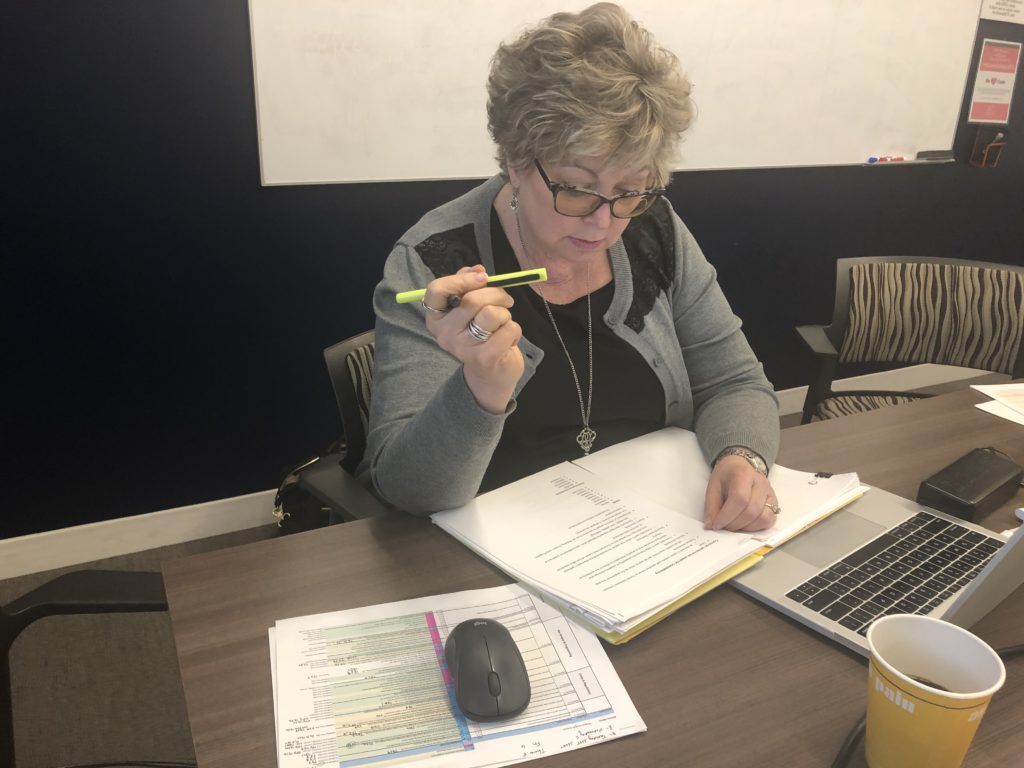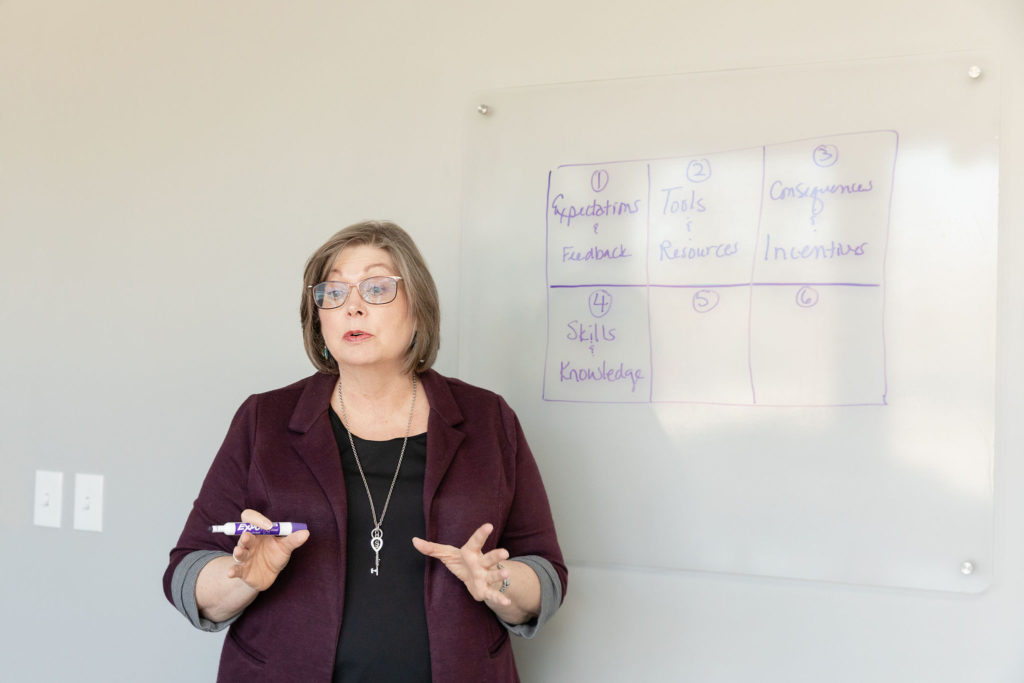Our Services
Our goal is to have an impact on results of value to your organization, and we partner with organizations using proven processes to get results.
The work we do falls under the umbrella of “Performance Consulting.”
What does this mean? In practical terms, it means we don’t enter into a consulting activity for the sake of the activity. Our goal is to have an impact on results of value to the organization, and we partner with organizations using proven processes to get results. We don’t begin knowing what the solution is; we keep an open mind so that we can find the best way to get results.
The combination of deliverables we provide typically falls into one or more of the following types of services.
What does “good” look like?
What should we be doing/not doing?
How do we get people from “here” to “there”?
Is it working?
Let’s talk about performance!
Performance Assessment is a set of information-gathering activities that result in defining and measuring individual and organizational performance. A comprehensive performance assessment:

We gather data through interviews, focus groups, surveys, and other methods. We also examine your organization’s systems and performance data to gain a comprehensive understanding of what’s happening. We are inclusive, finding ways to represent the voices of all key stakeholders.
We start with the end in mind (the measures of success) and work to find the best way to get there.
When an organization starts a new initiative or experiences a problem, part of the solution always involves learning and talent development. Your workforce needs to do different things or the same things in different ways. A sound strategy is based on your organization’s needs, and it answers these types of questions:

According to ATD’s State of the Industry Report (2019), the average organization spent $1299 per employee on learning. Does that spend yield results? Not always.
A performance-focused curriculum (or course) is not topic-focused. It is designed to provide the right knowledge and skills at the right time to support desired performance. A sound curriculum architecture is organized based on these types of questions:

“If it’s not being measured, it’s not being managed.”
A sound evaluation strategy gives you information to make decisions and take action with confidence. It allows you to preserve what’s working well and to change or adjust what can work better. We work with you to determine what you need to know, and then create a strategy. Important decisions include:
Sometimes you just need to talk with someone about performance or performance improvement and how different solutions may apply to your situation. We are here for you!
We have coached leaders through new initiatives as well as coached project teams through projects, providing targeted performance improvement content along with guidance and feedback. This is a great choice if you want to upskill your team!

What is an industry standard? Or another way to ask this question: How do you judge or compare practices among consultants?
Industry standards are criteria and practices that competent practitioners follow. They are the standards by which our work is (and should be!) judged. Because learning and performance solutions will vary based on context, it’s important for practitioners in this industry to monitor and follow standards. A competent practitioner can tell you what industry standards they relate to and how those standards are reflected in their work.
We have participated in creating and follow the Certified Performance Technologist Standards promoted by the International Society for Performance Improvement (ISPI).
Also relevant are the Instructional Designer Competences and Evaluator Competencies developed and validated by The International Board of Standards for Training, Performance and Instruction (ibstipi).
For individual development (and when we’re helping learning functions upskill), we like the new Talent Development Capability Model promoted by the Associates for Talent Development (ATD).